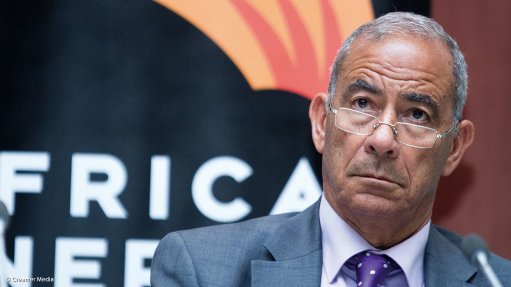
MOSAD ELMISSIRYOne of the objectives of SE4ALL is ensuring energy access for the world population by 2030
Photo by: Duane Daws
Planning and coordinating body of the African Union the New Partnership for Africa’s Development (Nepad) had established that countries in Africa wanted to take ownership of the energy projects in their regions, said Nepad head of energy programmes Professor Mosad Elmissiry at the Africa Energy Indaba Ambassador Briefing, in Sandton, last week.
This comes after the organisation held three workshops in Gaborone, Botswana, to assess the needs of the implementation of the United Nations Secretary General’s Sustainable Energy for All (SE4ALL) initiative.
The SE4ALL initiative was launched in 2011 and significant progress was made in 2012 with the engagement of Africa in the three workshops, resulting in a set of recommendations that were endorsed by the Conference of Energy Ministers of Africa (Cema) in November. Cema’s resolution requires that Nepad’s Planning and Coordinating Agency, the African Union Com- mission and the African Development Bank coordinate SE4ALL, using the recommendations as a guideline.
The top three guidelines are the Africa SE4ALL action plans, the Africa strategy for decentralised energy services and the Africa steering committee policy framework.
“There are about 1.2-billion people in the world with no access to energy and it is estimated that half of them are in sub-Saharan Africa; therefore, the objectives of SE4ALL include ensuring energy access for the world population by 2030, which will cost about $600-billion,” Elmissiry said.
The second objective was to double the share of renewables in the energy mix and the third to double the rate of energy efficiency in Africa, said Elmissiry.
Nepad will allow countries to opt in, after which it will conduct a stocktaking and gap analysis of the energy status of the country. It will assess countries’ national action plans and monitor them to ensure that energy projects are completed through the provision of assistance for the African countries by driving their energy projects.
“Further, we will coordinate and facilitate the implementation of the flow of information regarding world trends in energy projects and see that these are communicated to the African countries,” he said.
Nepad will select four countries that will be assisted in developing their energy action plans and investment prospec- tuses and in identifying their resources.